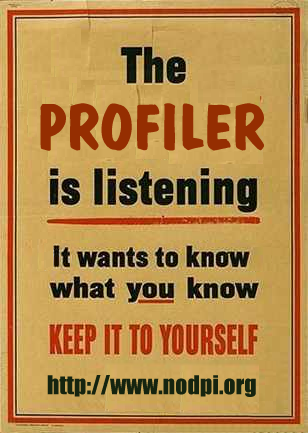The 'Internet is Broadcast' Hoax

Phorm and their associates often suggest that web pages are 'broadcast', and therefore perhaps less private.
Here's why that's not true.
Everyone who listens to a radio programme hears the same programme, and the programme makers don't know who their audience are nor can they adapt the content of the programme.
The internet is more like a sophisticated public library. You choose the content you view. A website can interact with you, and is therefore able to give you personal and private content, different from that which is given to other visitors.
Most methods of communicating over the Internet, including web servers, follow a two way request/reply model of operation... very like a telephone conversation. You send a request to the web server, the web server replies to you, you send a request, the web server replies. (This is called 'unicasting', a term used to characterise private one to one communications between two points on a network).
In fact, very little if any content is truly broadcast on the Internet. (The technology required to broadcast over the net is relatively immature, it is called 'multicasting' and isn't widely used at present).
The order of the requests you make to web servers, and the content of the web pages you receive, is specific and private to you and the web servers you choose to interact with.
Phorm (and similar systems) exploit intelligence gleaned from snooping on the private 'data conversations' between web sites and their visitors.
Conclusion
Phorm want to intercept the private and personal 'data conversation' between users and the web sites they visit. Those pages are not broadcast, they are specific and private to the sender and recipient.
You have no visibility of the resulting data they will hold about you. And you are being asked to trust a company with alleged links to malicious software, who have tested their software in secret in 2006 and 2007 on hundreds of thousands of unsuspecting BT customers.
Why would you?


 Dephormation
Dephormation 


 Use the
Use the  RIPA NOTICE: NO CONSENT IS GIVEN FOR INTERCEPTION OF PAGE TRANSMISSION
RIPA NOTICE: NO CONSENT IS GIVEN FOR INTERCEPTION OF PAGE TRANSMISSION